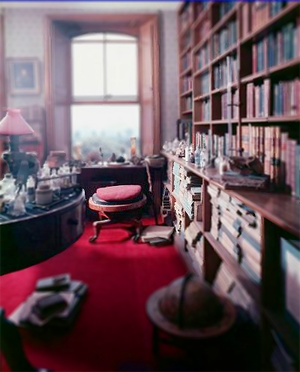Debating Darwin
A textual exchange between Robert J. Richards and Michael Ruse
Richards and Ruse are currently in the process of coauthoring a project that puts their long-standing spirited and collegial debate in print for the first time. Fast friends for the past thirty years, this unique and fascinating study not only furthers an already established exchange on Darwin, but Richards and Ruse also invite the reader to contribute to it in unprecedented fashion.
Richards and Ruse invite the public to read and comment upon drafts of their new book, and to engage with one another as well in the spirit of extending their provocative debate. While each chapter will be singularly authored, the reader is invited to compare and contrast on an online forum.
Each Chapter will be made available online when it is in draft form. A tentative outline is below:
THE BACKGROUND
This would deal with the general state of society including science in the century or more before Darwin, laying out the important influences (the Romantic Movement, the Industrial Revolution) that will come into play when Darwin starts to observe and to theorize.
THE ROUTE TO DISCOVERY
The early years of Charles Darwin, his schooling, and the time spent on board HMS Beagle, from 1831 to 1836. Topics to be included here would be the scientific training, the development of Darwin’s religious views, and his general philosophy of life.
EVOLUTION AND NATURAL SELECTION
When and why did Darwin become an evolutionist? The route to natural selection, and the way in which Darwin expressed his ideas in his early unpublished writings (the Sketch of 1842 and the Essay of 1844).
THE JOURNEY TO AND THE WRITING OF THE ORIGIN OF SPECIES
Why did Darwin delay publication for so long? What did he learn between 1844 and 1859, the year of the publication of the Origin? What about the book itself, its content and its structure?
THE LATER YEARS
The work that Darwin did in the final twenty years of his life, especially including the work on our own species, Homo sapiens. How did Darwin deal with issues like morality and religion? How did natural selection fare as a mechanism in the thinking of Darwin and others?
OVERVIEW
Partly a continuation of the evolution story down to the present, but also a discussion of the achievements of Darwin and how they should be interpreted and regarded today.




